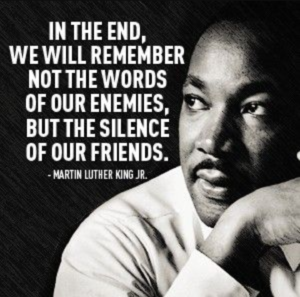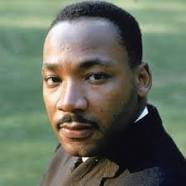
I woke up this morning and watched Dr. Martin Luther King’s “I’ve Been to the Mountaintop” speech in Memphis.
He was assassinated the next day. He never got to the Promised Land. He knew he wouldn’t.
But MLK saw the Mountain Top. He saw America’s problems, but he also saw its potential. He had hope for the nation to become the Promised Land.
So do I.
I also have hope for our community.
Last week, I wrote about finding an old video from Delray Beach’s first All America City Award win in 1993.
The footage reminded me of a productive and happy time in our community. In the 90s and beyond, Delray was brimming with aspiration and there was widespread civic engagement and a whole lot of unity.
After the hotly contested 1990 election, we would go ten years before the next contested election. That’s astonishing when you think about that through the lens of today’s toxic politics.
But it didn’t seem so strange back then because people were largely happy with the city’s direction at the time. It’s hard to imagine an uncontested seat these days.
While competitive elections are healthy, it’s hard to remember a time when the electorate wasn’t polarized. It’s also hard to remember a time when elections were about ideas not about personalities and whose “camp” you’re in.
Sadly, we are not alone.
We live in a polarized nation—a dangerously divided country in which both sides believe the other side poses an existential threat to their survival.
The division and vitriol that accompanies that division consumes a lot of the time of many people that I know.
And we wrestle with its many manifestations.
Locally, we see the division play out with bickering on social media, nasty elections and political decisions based on personalities not sound public policy.
Nationally, we all know how toxic Washington has become.
But the division has even affected families and friendships.
I know people who don’t speak to once beloved relatives because they voted for Trump or Biden.
And I’m really wrestling with my feelings for a longtime friend who is an ardent anti-vaxxer who supports a U.S. Senate candidate who believes the vaccine is “Luciferian.” When I saw a video of the candidate, it literally made me nauseous. I wanted to buy the guy a one-way ticket on Elon Musk’s spaceship.
Of course, my friend would rather have people send the candidate money so he can protect Americans from a vaccine that I consider a lifesaver. The candidate calls the jab the mark of the beast. Sigh.
I know I tipped my personal politics with that story, so I guess I can count on a few of you dropping off here. Go ahead, I’ll miss you.
Let’s just say that as a Covid survivor, I am grateful for the vaccine. If it keeps me and my loved ones out of the hospital and alive, I’m good with that. I don’t fear 5G or being controlled by Bill Gates and I don’t believe Democrats are molesting children on the second floor of a pizza shop that didn’t have a second floor.
I think the feds have done a bad job with messaging on the virus and that our government has been a day late and a dollar short on testing. But I’m grateful for the scientists hard at work to protect us and to companies like Moderna who I believe have saved millions of lives. And if you think that makes me a socialist, well I’m also glad I bought Moderna stock. 😊
When I was hospitalized with Covid in the summer of 2020, they had nothing to throw at me except some anti-virals, experimental convalescent plasma, powerful steroids, and Vitamin D. The threat of a ventilator loomed over me for 39 long and painful days. So, when a vaccine was approved, I couldn’t wait to get it.
I honestly don’t believe I have the mark of the beast running through my veins (some may disagree). I do thank the good lord for granting all of us some measure of protection.
But enough about what ails us.
How about some solutions?
Nationally, there’s an organization called No Labels (www.nolabels.org) that is trying mightily to bring Democrats and Republicans together through what is called the “Problem Solvers Caucus.”
A few months back, thanks to the generosity of a friend in Delray, a few of my buddies and I had a chance to interact via phone with the organization’s top leadership. I liked a lot of what I heard, but honestly, I’ve been turned off by some other things and I’ve shared that with the organization’s top brass who have been kind enough to debate me via email.
My biggest beef with No Labels is that they seem to push a few favorite politicians and I think that’s risky in this environment. I think they should be concentrating on the basics: bipartisanship, the need for compromise and the importance of having peaceful transfers of power after elections.
They won’t get my money to support some overstuffed overrated Senator. Not that my money matters anyway.
No Labels has promise, but it’s not enough and it’s missing the mark in a few fundamental ways. Are they a solution? I hope so, but I’m not convinced. (Sorry, Randy, it’s not personal, just business).
I do think volunteering is a potential answer to bridging divides. But there’s some headwinds to overcome–namely people aren’t volunteering.
There was some bad news for Florida released to little fanfare last week.
The Corporation for National and Community Service ranks Florida as the lowest volunteer state in the nation, with 22.8% of residents volunteering statewide. The Miami/Fort Lauderdale/West Palm Beach area ranks even lower: 18.7% of residents volunteer, ranking us the lowest among studied metropolitan areas.
Yikes!
Here’s how our community/region fared on some other metrics:
- 97.4% of residents regularly talk or spend time with friends and family
- 39.2% of residents do favors for neighbors
- 24.6% of residents do something positive for the neighborhood
- 14.0% of residents participate in local groups or organizations
- 36.7% of residents donate $25 or more to charity
We lag the rest of the state with those numbers. Here are Florida’s numbers:
- 95.4% of residents regularly talk or spend time with friends and family
- 50.9% of residents do favors for neighbors
- 23.6% of residents do something positive for the neighborhood
- 19.2% of residents participate in local groups or organizations
- 43.2% of residents donate $25 or more to charity
Utah, with a 51 percent volunteer rate is number one, followed by Minnesota at 45.1 percent and Oregon at 43.2 percent.
Florida ranks dead last— one percentage point below Mississippi.
Minneapolis-St. Paul tops the nation’s cities at 46.3 percent, followed by Rochester, N.Y. at 45.6 percent and Salt Lake City at 45 percent. Our community ranks dead last among major metros with an 18.7 percent volunteer rate just below Las Vegas.
I think civic participation and volunteerism are solutions to polarization. It’s easy to demonize someone you don’t know, and harder to ignore the humanity of someone you work beside.
When Delray won its first All America City Award in ’93 and became the first city in Florida to win twice in 2001, we had over 1,000 people volunteering for our Police Department. We had several hundred trained for the Fire Department’s Community Emergency Response Team (which came in handy after hurricanes) and programs such as a Youth Council, Citizen Police Academies, Neighborhood Potluck Dinners, Study Circles (part of a race relations initiative), youth summits, neighborhood summits, a Neighborhood Advisory Council, Neighborhood Task Teams, Town Hall meetings, Resident Academies, Haitian Citizen Police Academies and a slew of citizen driven visioning exercises to guide our elected officials. We may have a few of these programs left, but a lot of these efforts have been gutted, discarded, and or forgotten about.
We even had a Citizen’s Tool Kit given to new residents to help them get connected. You were given a kit when you registered to get your water meter turned on.
When we look for answers I would start with beefing up volunteerism, civic engagement, and citizen input. The efforts must be real and authentic, not check the box window dressing.
It’s not easy with Covid, but it’s doable.
It will take a lot of time and resources, but if successful, we can reknit the social fabric.
People who work together toward a common goal tend not to hate each other. In fact, just the opposite occurs. Respect builds, relationships form, and community gets built.
And my friends, we need community now more than ever. We need it before it’s too late.

